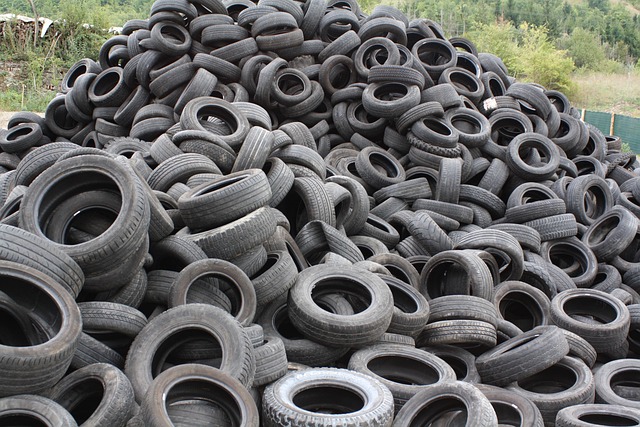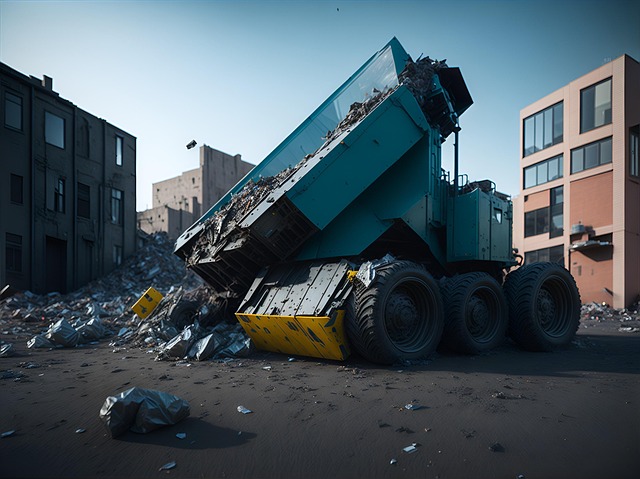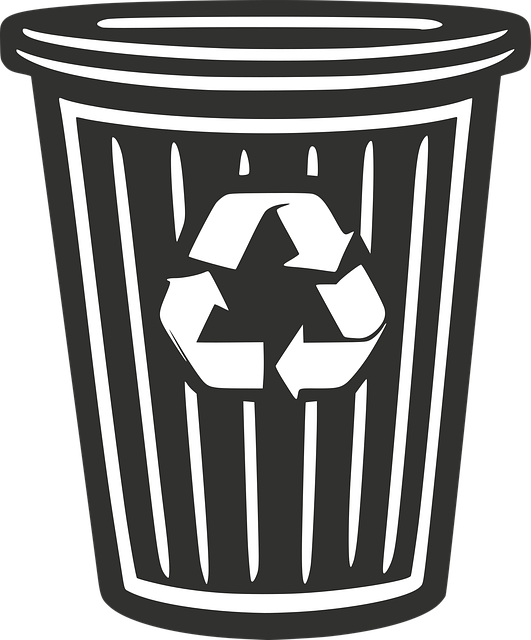Boston and New York City grapple with the growing issue of electronic waste (e-waste), driven by technological advancements and historical significance. Traditional recycling methods struggle with complex material mixes. However, local startups are leading an eco-friendly revolution with innovative technologies for responsible e-waste management. Their goal is to establish a circular economy, aligning with global efforts like NYC's computer recycling programs. Green initiatives in these metropolises transform them into eco-friendly centers, reducing carbon footprints and fostering sustainability. Challenges include complex material mixes and informal tech markets, but strategies like resident education, incentives, and partnerships can ensure responsible e-waste handling. Boston leads with startup initiatives transforming old equipment, setting examples for cities like New York to follow through cross-sector collaboration and advanced recycling solutions.
Boston and New York, bustling urban centers, face a growing challenge: managing vast amounts of electronic waste (e-waste). ‘Understanding Boston’s E-Waste Dilemma’ explores the pressing need for eco-friendly solutions. ‘Benefits’ highlights how green recycling initiatives can transform urban ecosystems. ‘Challenges’ delves into obstacles hindering effective e-waste programs. ‘Innovative Startups’ introduces Boston’s heroes revolutionizing recycling. ‘Key Strategies’ offers practical tips for businesses and residents. Together, these sections chart a course towards the future of sustainable disposal in cities like Boston and New York.
- Understanding Boston's E-Waste Dilemma: The Need for Eco-Friendly Solutions
- Benefits of Green Recycling Initiatives in Urban Centers like Boston and New York
- Challenges in Implementing Effective E-Waste Recycling Programs
- Innovative Startups Leading the Charge: A Look at Boston's Eco-Friendly Recycling Heroes
- Key Strategies for Successful E-Waste Recycling: Tips for Businesses and Residents
- The Future of Sustainable Disposal: Opportunities for Growth and Collaboration
Understanding Boston's E-Waste Dilemma: The Need for Eco-Friendly Solutions

Boston, a city known for its rich history and innovation, faces a growing challenge when it comes to electronic waste (e-waste). As technology advances rapidly, so does the amount of e-waste generated by households and businesses across the city and beyond. The traditional recycling methods often fall short in addressing the complex makeup of e-waste, which includes various materials like metals, plastics, and hazardous substances. This dilemma is not unique to Boston; cities like New York City (NYC) also struggle with effective e-waste management.
In light of this, there is an urgent need for eco-friendly recycling solutions that can responsibly handle the diverse range of electronic devices and components. Boston startups are stepping up to fill this gap by introducing innovative technologies and strategies. By focusing on sustainable practices, these entrepreneurs aim to create a circular economy, ensuring that e-waste is recycled, repurposed, or disposed of in an environmentally friendly manner. This shift towards green initiatives not only benefits the local environment but also aligns with global efforts to reduce electronic waste, especially as NYC computer recycling programs and boston office equipment salvage gain more traction. Manhattan e-recycling drop-off points are becoming more accessible, making it easier for residents and businesses to contribute to this eco-friendly movement.
Benefits of Green Recycling Initiatives in Urban Centers like Boston and New York

Green recycling initiatives play a pivotal role in transforming urban centers like Boston and New York into eco-friendly metropolises. By prioritizing e-waste recycling, these cities are not only reducing their carbon footprint but also fostering a sustainable future for upcoming generations. In densely populated areas such as Boston and NY, efficient tech waste management is crucial to combat the growing issue of electronic garbage. This innovative approach involves recycling materials from old computers, phones, and other electronics, thereby decreasing the demand for raw resources and minimizing environmental pollution.
Additionally, these initiatives offer numerous advantages to local communities. For instance, boston electronics recycling programs can provide certifications, ensuring proper disposal and recovery of valuable components. Moreover, partnerships with schools for computer recycling can help educate young minds about sustainability while contributing to a greener environment. Such practices not only benefit the planet but also create job opportunities in the green economy, making urban recycling efforts an essential component of global environmental conservation.
Challenges in Implementing Effective E-Waste Recycling Programs

Implementing effective e-waste recycling programs presents unique challenges for cities like Boston and New York, hubs of technological innovation but also major generators of electronic waste. One significant hurdle is the complex mix of materials found in modern electronics, making safe disassembly and segregation a complex task that requires specialized knowledge and equipment. Additionally, the informal market for second-hand tech in these metropolitan areas can undermine formal recycling efforts, as unsanctioned collectors may strip valuable components without proper environmental consideration.
Boston office equipment salvage and Manhattan e-waste collection events have shown promise in addressing these issues, but achieving widespread success demands comprehensive strategies that engage both residents and businesses. NYC tech waste reduction strategies should prioritize education about responsible disposal methods, incentivize participation through programs that reward recycling, and foster partnerships between local governments, tech companies, and non-profit organizations to ensure e-waste is handled responsibly and in line with the latest environmental standards.
Innovative Startups Leading the Charge: A Look at Boston's Eco-Friendly Recycling Heroes

Boston, a hub of innovation and technology, has also emerged as a leader in eco-friendly recycling, particularly when it comes to e-waste. Startups are at the forefront of this movement, introducing groundbreaking solutions that transform waste into resources. These entrepreneurial heroes are not only addressing the urgent need for sustainable practices but also setting an example for cities like New York to follow.
One such startup focuses on giving old office equipment a new life through a boston office equipment salvage program. They ensure proper green IT disposal solutions, extracting valuable materials and reducing the environmental impact of e-waste. Similarly, another local company has developed an advanced system for nyc tech industry recycling initiatives, making it easier for businesses to participate in sustainable practices without compromising on data security. These startups prove that going green is not only beneficial for the planet but also a smart business strategy.
Key Strategies for Successful E-Waste Recycling: Tips for Businesses and Residents

In the realm of Boston startup eco-friendly recycling, success hinges on strategic approaches tailored to both businesses and residents. One key strategy for effective e-waste recycling in Boston or New York (NYC) involves implementing robust collection programs. This includes setting up convenient drop-off points in commercial areas and residential neighborhoods, encouraging electronic device turnover with incentives, and utilizing digital platforms to promote participation.
For businesses engaging in nyc e-waste management, proper segregation at the source is paramount. Proper training of employees can ensure that different types of electronics are sorted accordingly, enhancing the efficiency of the recycling process. Additionally, partnering with reputable Boston electronics recycling services that hold a boston sustainable tech disposal certificate ensures adherence to environmental regulations and promotes responsible e-waste handling.
The Future of Sustainable Disposal: Opportunities for Growth and Collaboration

The future of sustainable disposal lies in collaboration and growth across various sectors, particularly in cities like Boston and New York that are hubs for technology and innovation. Boston’s thriving tech scene, combined with a strong environmental consciousness, presents unique opportunities to develop cutting-edge e-waste recycling solutions. By focusing on both residential and commercial waste management, the city can lead by example in sustainable practices. For instance, initiatives targeting boston computer recycling for schools not only benefit educational institutions but also contribute to the broader goal of reducing electronic waste.
Similarly, Boston’s diverse landscape includes numerous cell phone recycling centers that play a vital role in the global effort to manage tech waste responsibly. As the demand for new devices continues to grow, so does the need for efficient and eco-friendly recycling methods. Collaboration between local startups, established tech companies, and government bodies can foster innovative solutions tailored to Boston’s specific needs. This approach, if replicated and scaled, could significantly impact national e-waste recycling efforts, setting a precedent for other cities like New York in managing their growing tech waste.
Boston and New York, as urban hubs, face significant e-waste challenges. However, startups are revolutionizing eco-friendly recycling, offering innovative solutions for sustainable disposal. By implementing successful strategies and fostering collaboration, these cities can lead the way in reducing their environmental footprint. The future of green recycling promises a cleaner, more sustainable tomorrow, ensuring that both Boston and New York remain vibrant examples of urban progress and ecological stewardship.














